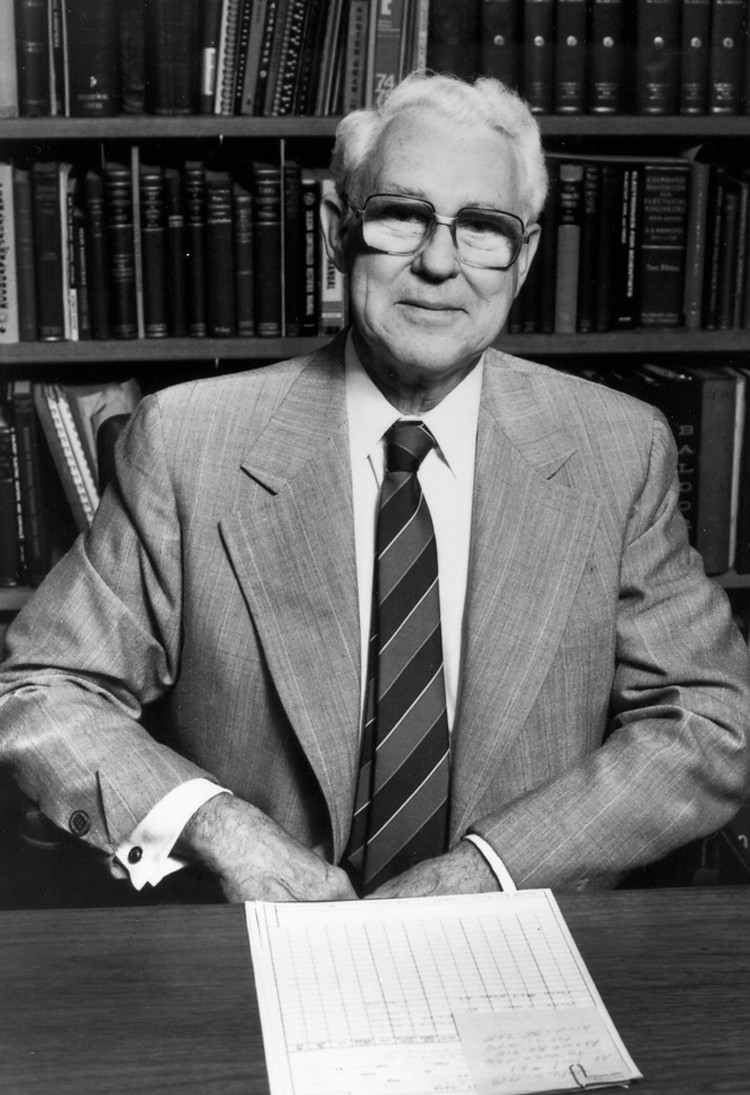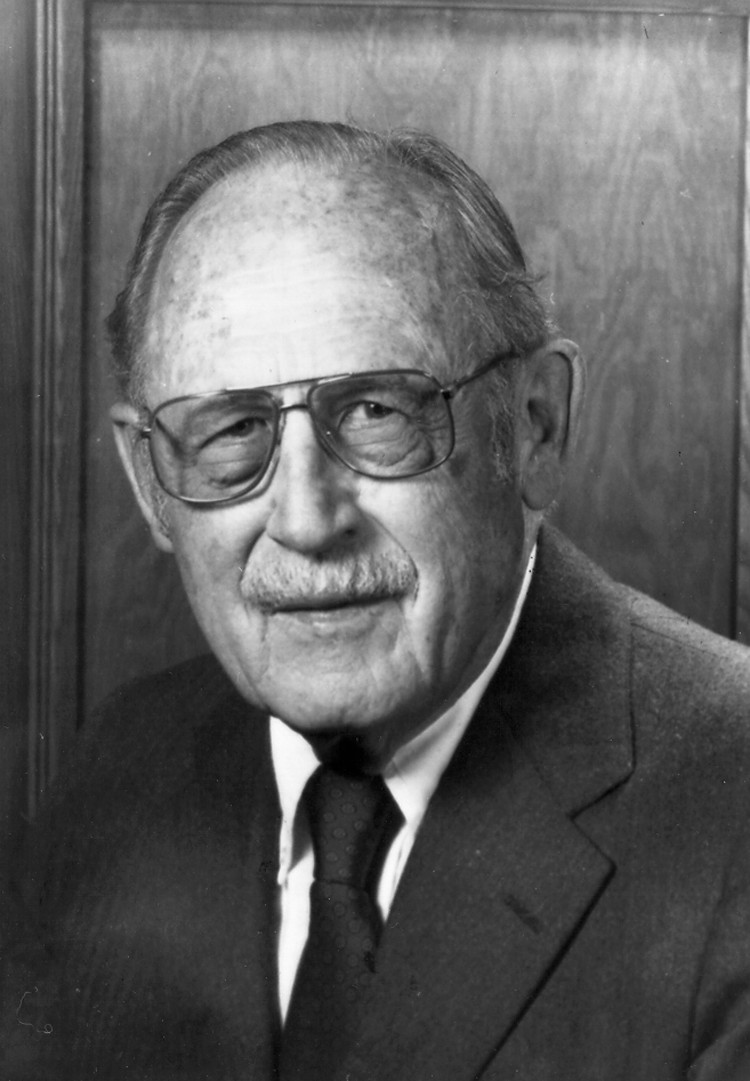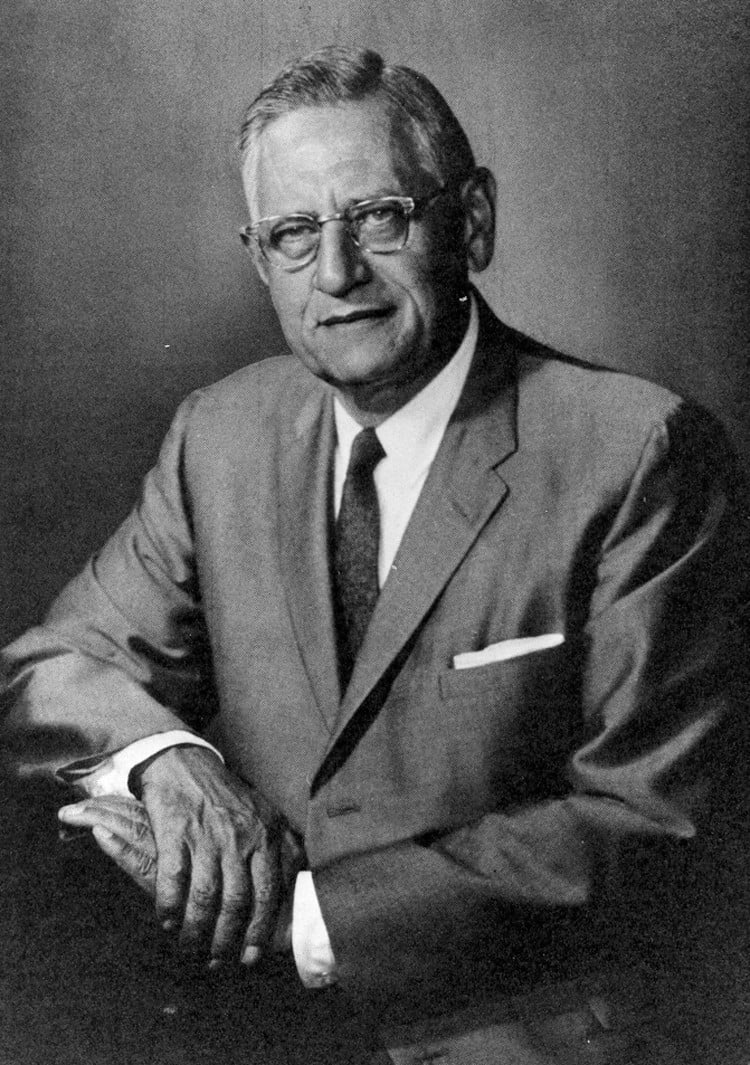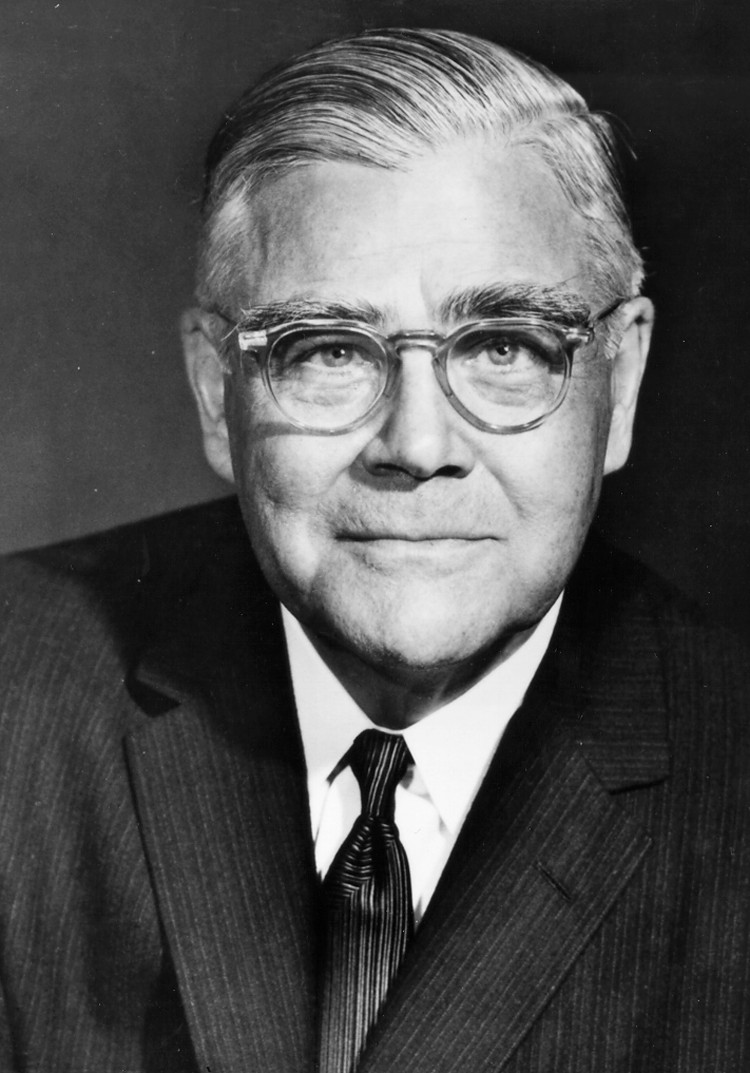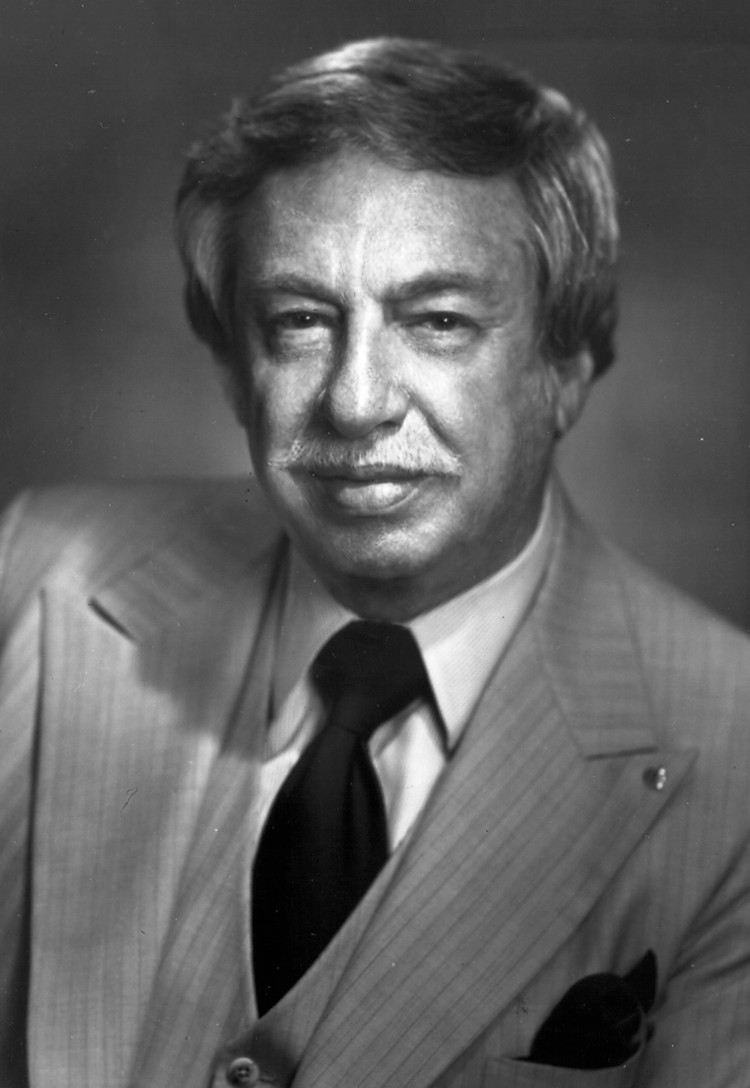It's easy to start your application.
McKelvey Engineering Awards
1986
|
|
Frederick C. Ballman Frederick Ballman's engineering savvy and vision and served Baldor Electric Company for nearly half a century during which the company became one of the nation's leaders in its field. Mr. Ballman joined Baldor at its St. Louis headquarters and plant immediately after graduation from Washington University in 1935. He began as a technician in its lab and within four years was promoted to chief engineer. Though his degree was in chemical engineering, he learned electrical engineering on the job and by private study. In only six years, he rose to be the company's chief engineer responsible for design of all its new industrial electrical motors. He remained in that position of 13 years. |
In 1959 Mr. Ballman was named president of Baldor Electric. Within a few years, he determined that, to accommodate future growth, Baldor's corporate headquarters should be moved to Fr. Smith, Arkansas. During Mr. Ballman's more that 20 years as president and then chairman of the board, Baldor grew to leadership in its field. Between 1962 and his retirement in 1980, its sales rose from $4 million to more that $150 million. Today, Baldor is among the nation's ten largest original equipment manufacturers and distributors of industrial electrical motors.
|
|
Richard D. Dunlop Richard D. Dunlop's remarkable career divides into three distinct segments each pursued with imagination and gusto. For nearly 30 years he was a chemical engineer and executive for Monsanto Company. For 12 additional years he was consultant to Monsanto's executive committee and a member of its corporate planning group. In 1971 he became executive director of a nonprofit organization which advises on and evaluates community needs for corporate philanthropy. |
Mr. Dunlop joined Monsanto in 1927, before his engineering education was completed. He was an analytical chemist in organic chemical manufacturing. In 1938, he became co-director of plastics research for Monsanto in Springfield, Massachusetts. In 1946-47 he was loaned by Monsanto to the U.S. government to survey German chemical technology. From 1947 to 1956 he held responsibilities for Monsanto's worldwide plastics operations. In 1956 he returned to St. Louis as consultant to the executive committee.
In 1971, Mr. Dunlop became executive director of the St. Louis Metropolitan Association for Philanthropy, a liaison organization between corporate donors and community organizations. He was a commissioner and chairman of the St. Louis County Planning Commission and a representative to the East-West Coordinating Council Forum. He retired in 1980.
|
|
Bernard Fischlowitz This is a posthumous award since this awardee co-founded Midwest Consultants, Inc., the predecessor to today's diversified Sigma-Aldrich Company, in 1932. The Sigma-Aldrich story began with a pair of chemical engineers, brothers with different names, Aaron Fischer and Bernard Bischlowitz. According to company pamphlets and pre-press documents, they started turning out specialty products on Easton Avenue - inks, dyes and adhesives - during the Great Depression. He was president of the company at his death in 1969. Fischlowitz, who received a B.S. in chemical engineering in 1924, was active in the Jewish community throughout his career. He was a member of the Young Men's Hebrew Association. |
|
|
Ralph L. Gray For more that four decades, Ralph L. Gray contributed his enormous and varied talents to the development of the American steel industry. His early work as an electrical engineer and team leader pioneered processes that changed the industry. His later work as an executive contributed materially to its expansion. He was responsible for the landmark technology that in 1923 first used an "all scrap charge" in an open hearth furnace. By 1931, however, Mr. Gray had entered top-level management. After 20 years as president of Sheffield Steel Corporation, he became executive vice president and two years later became president. He was named chairman of the board of Armco Steel Corporation in 1959 and retired in 1964. He died in 1979. |
Mr. Gray's extraordinary career began when Dean Alexander Langsdorf suggested he join Langsdorf's colleague, William L. Allen, at a small forge plant in East St. Louis. Whe the plant was sold, both engineers joined Laclede Steel in St. Louis and 1923 moved to Kansas City Bolt and Nut Company, which became Sheffield Steel.
Throughout his life, he was active in civic activities and supportive of many charitable interests. They also had owned farms throughout their lifetime and had shown horses and dogs (German Shepherds) throughout the country.
Mr. Guller and three McDonnell Douglas Co. engineers founded Essex Industries in 1957 in Mr. Guller's father's basement, where Mr. Guller began making radio noise filters. The company today has 325 employees in five plants in St. Louis and in Edwardsville that design and manufacture pilot-control grips and oxygen life-support systems for all major U.S. military fighters and transport aircraft. The company also makes various products for the health care industry. Mr. Guller retired from day-to-day business matters in March 1990, but the company remains a family-run business. Mr. Guller was born and grew up in St. Louis, attended Washington University School of Engineering and served in the Army in World War II. In the early 1970's, Mr. Guller received the state, regional and national Small Businessman of the Year award. He later served on the White House conference on Small Business, and in 1984, at the invitation of the Secretary of Defense Casper Weinberger, Mr. Guller was a delegate to the Joint Civilian Orientation Conference on military operations. In 1989 he was inducted into the St. Louis Small Business Hall of Fame. He was active with many boards and institutions, including the Arts and Education Council, the Jewish Federation, the St. Lousi Science Center, St. Louis University President's Council, The James S. McDonnell USO and the St. Louis Holocaust Museum. |

